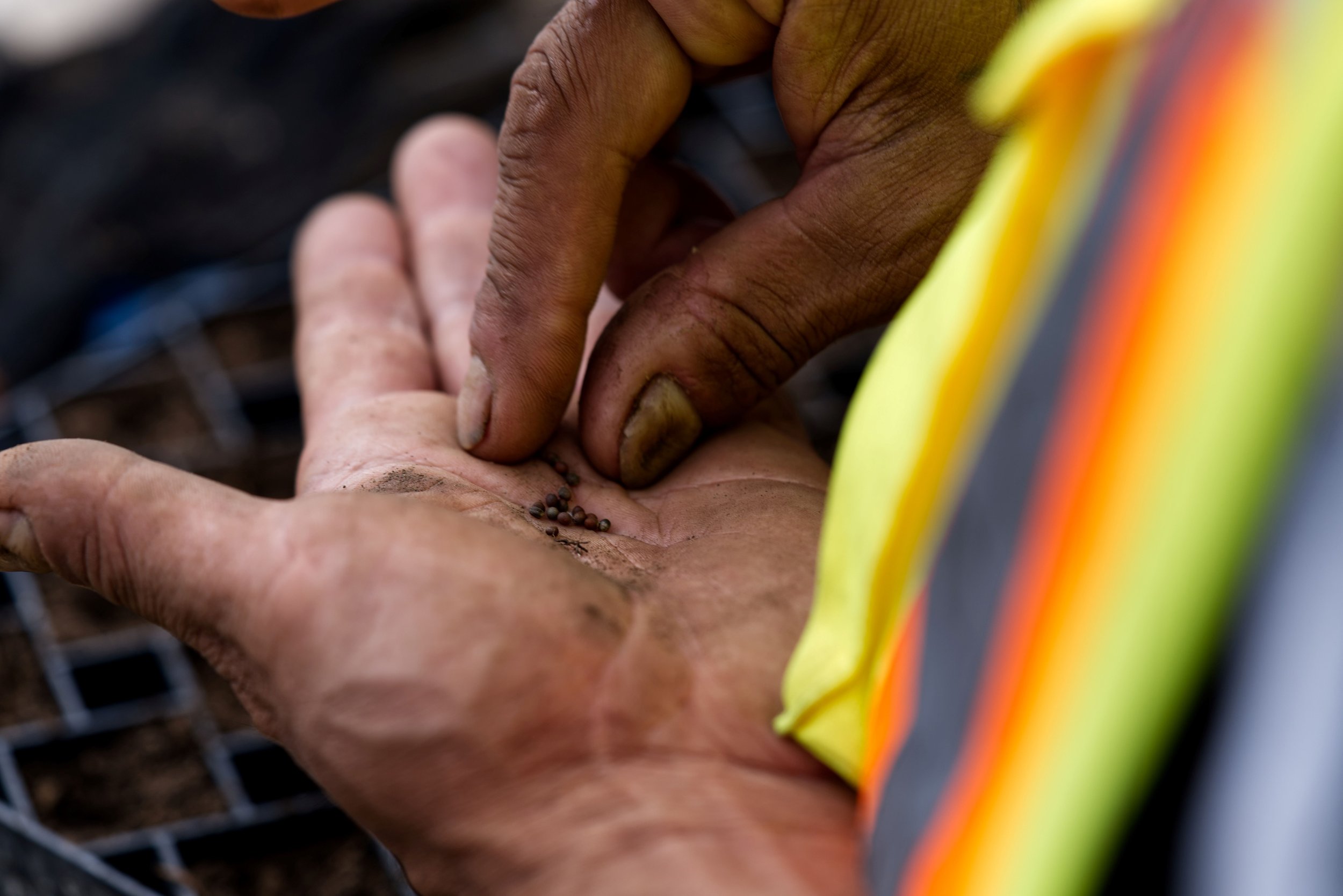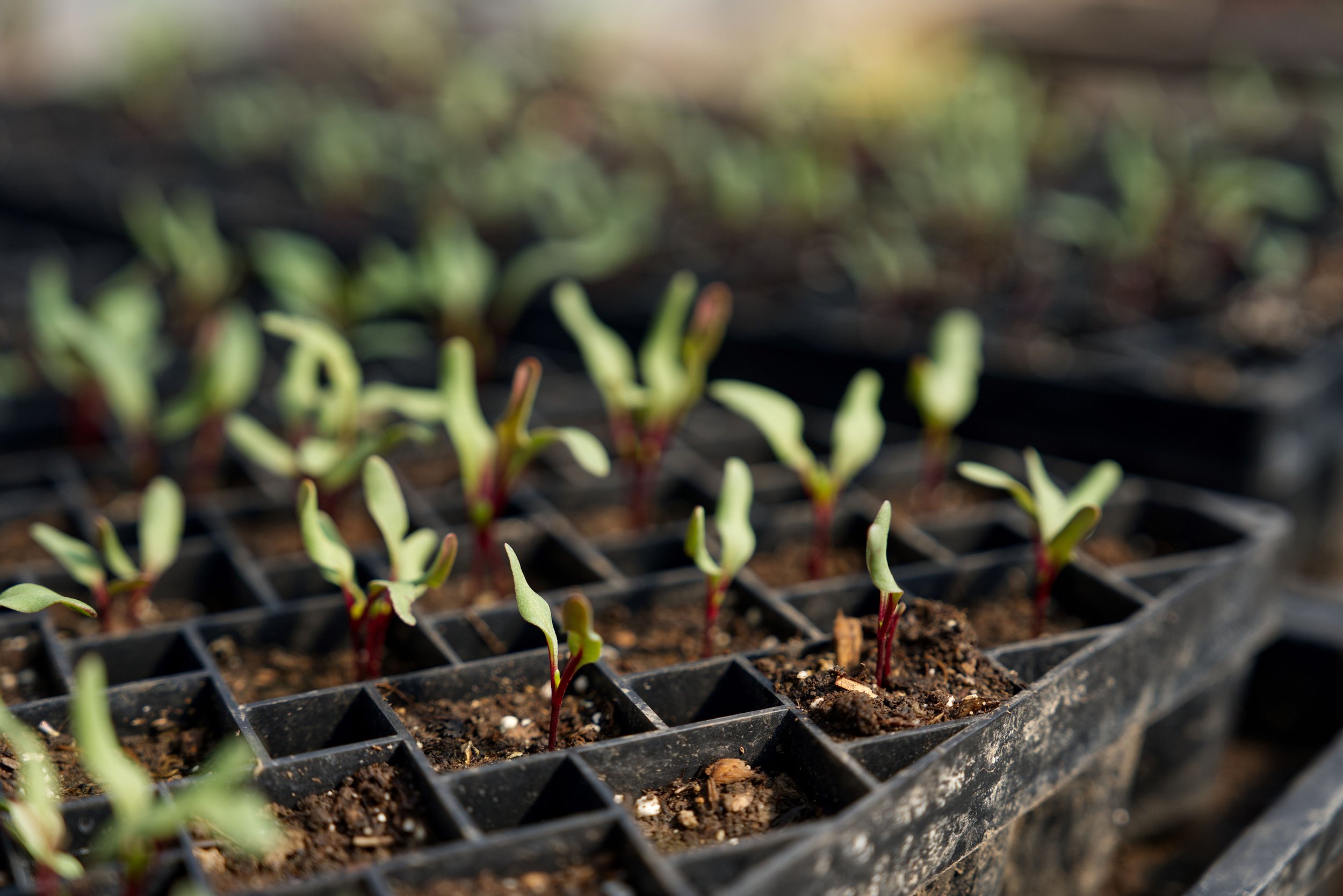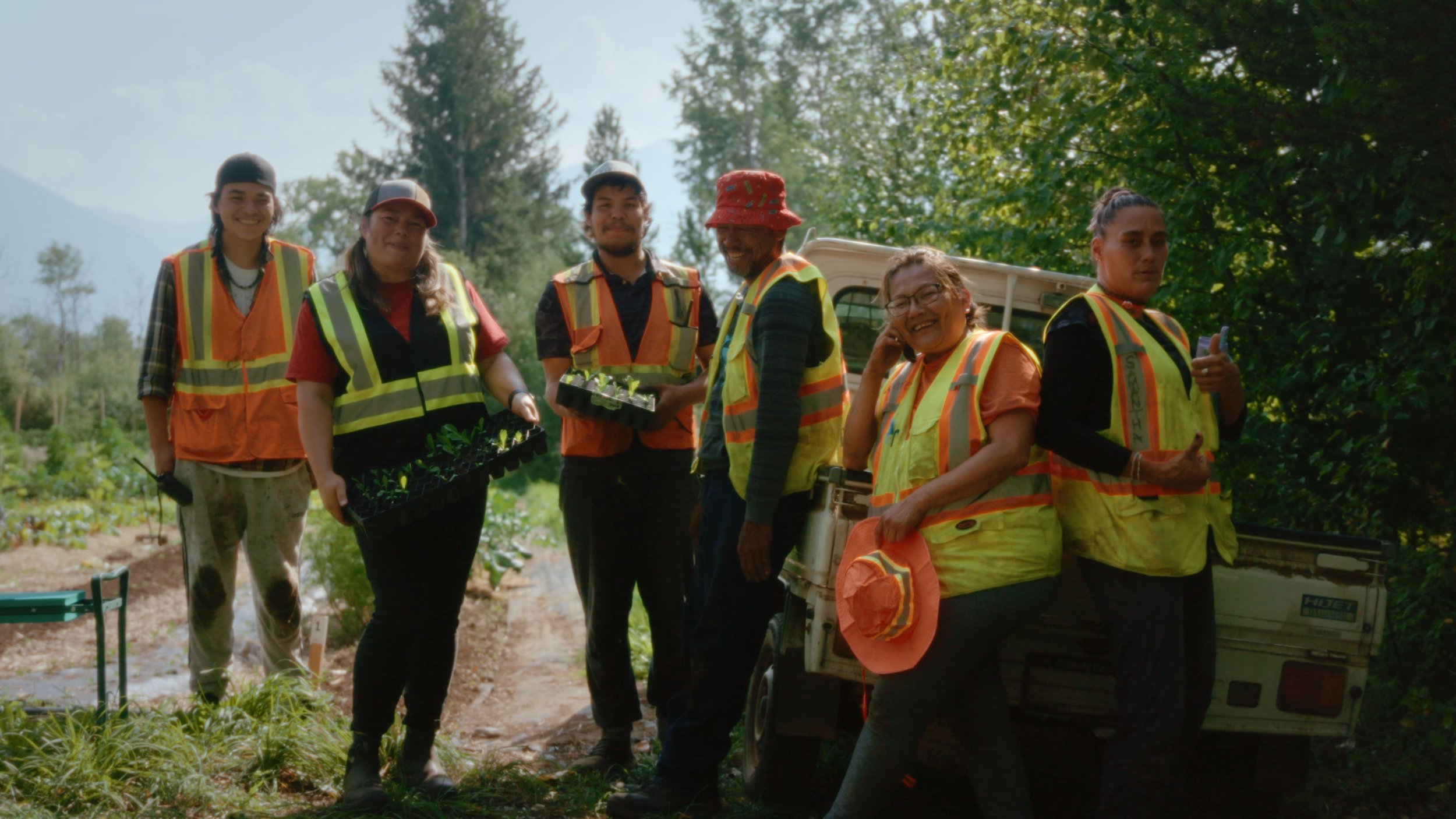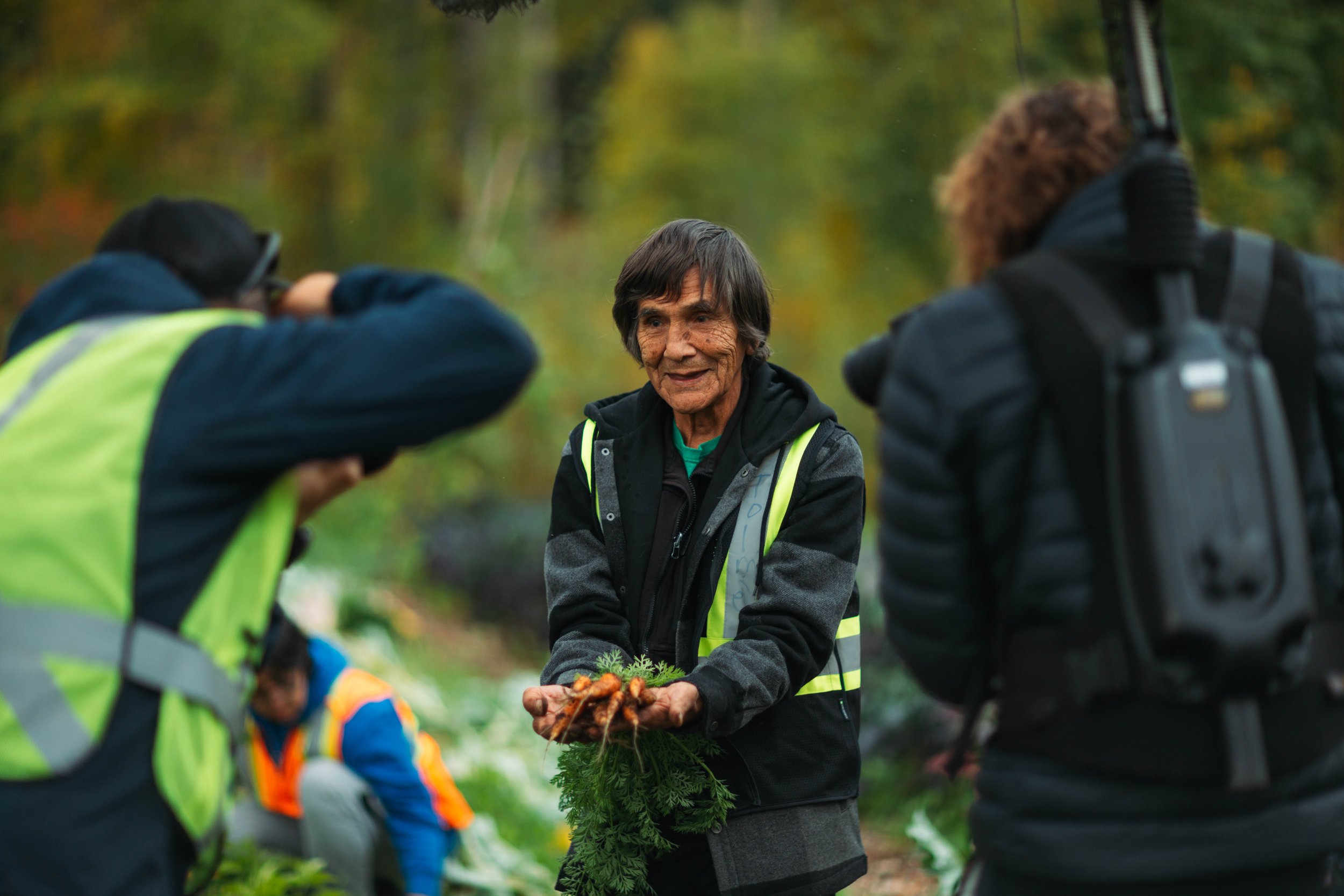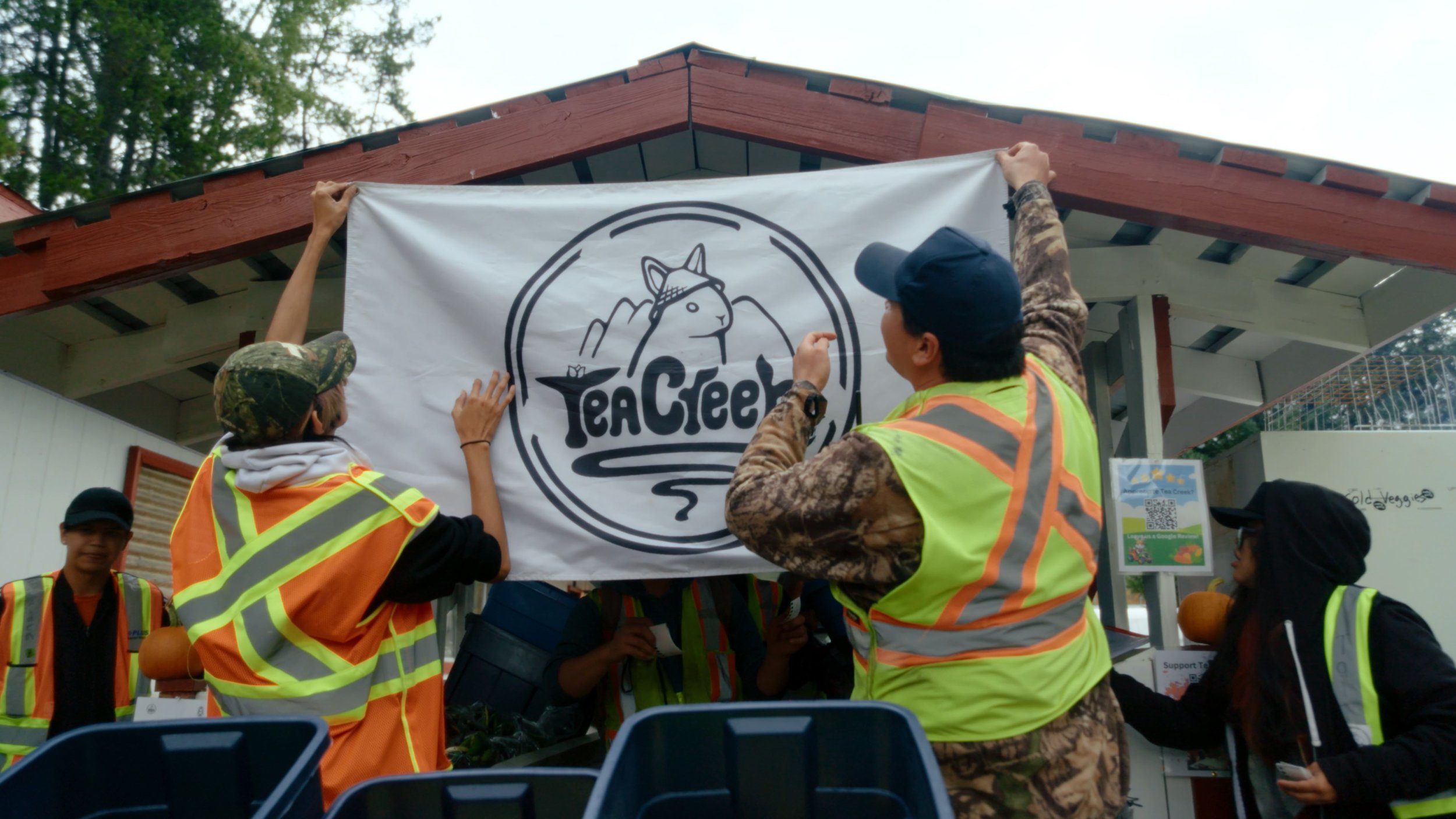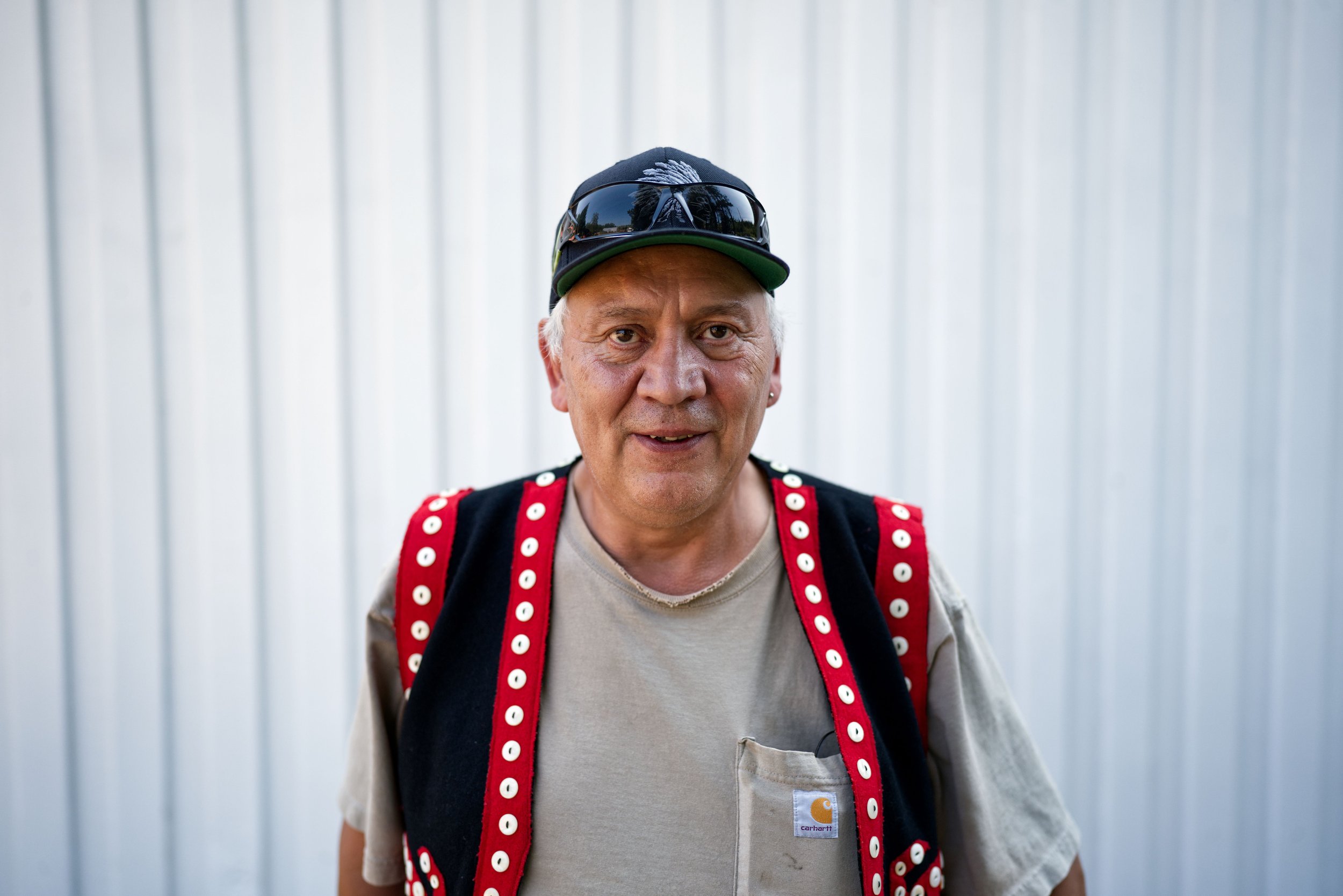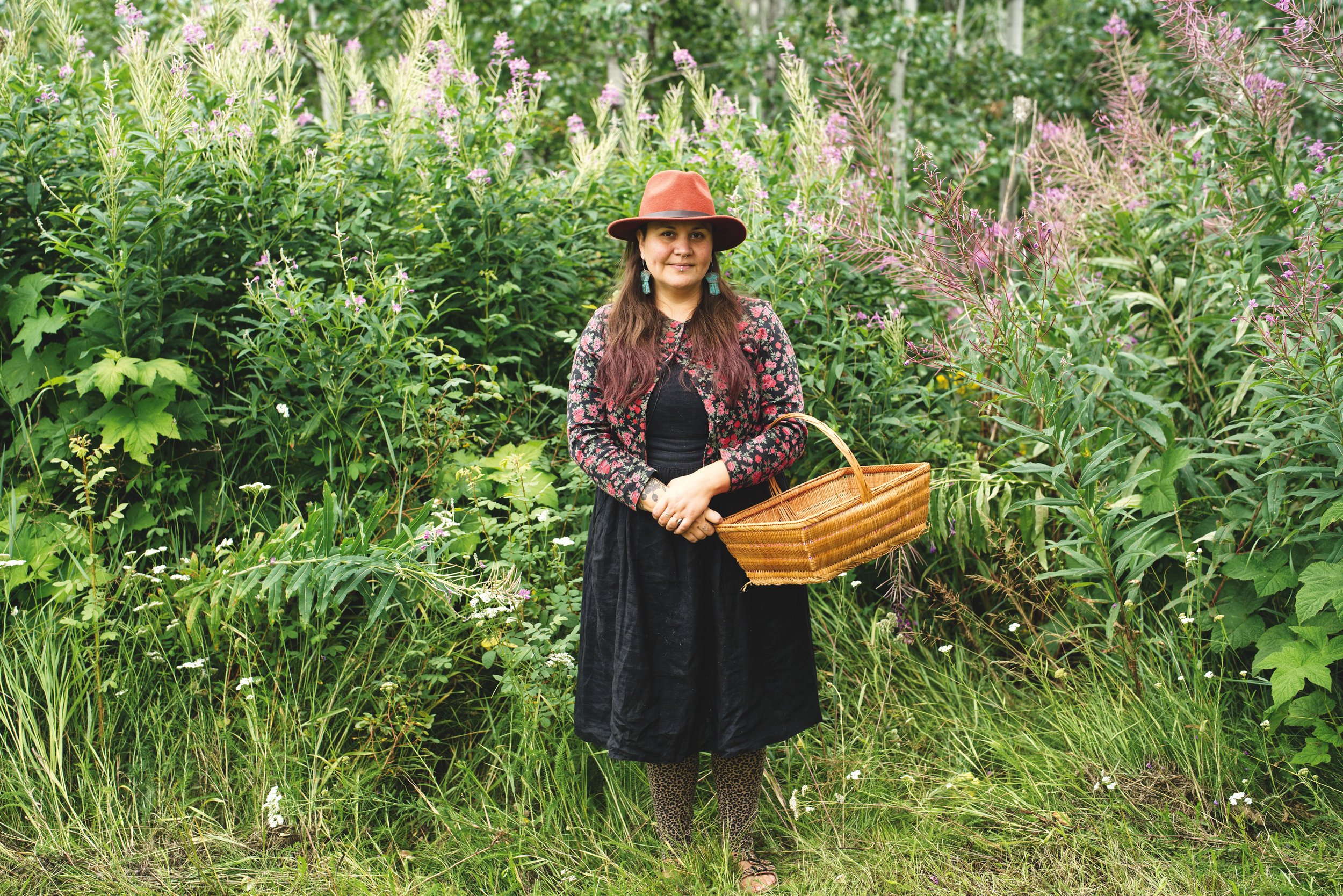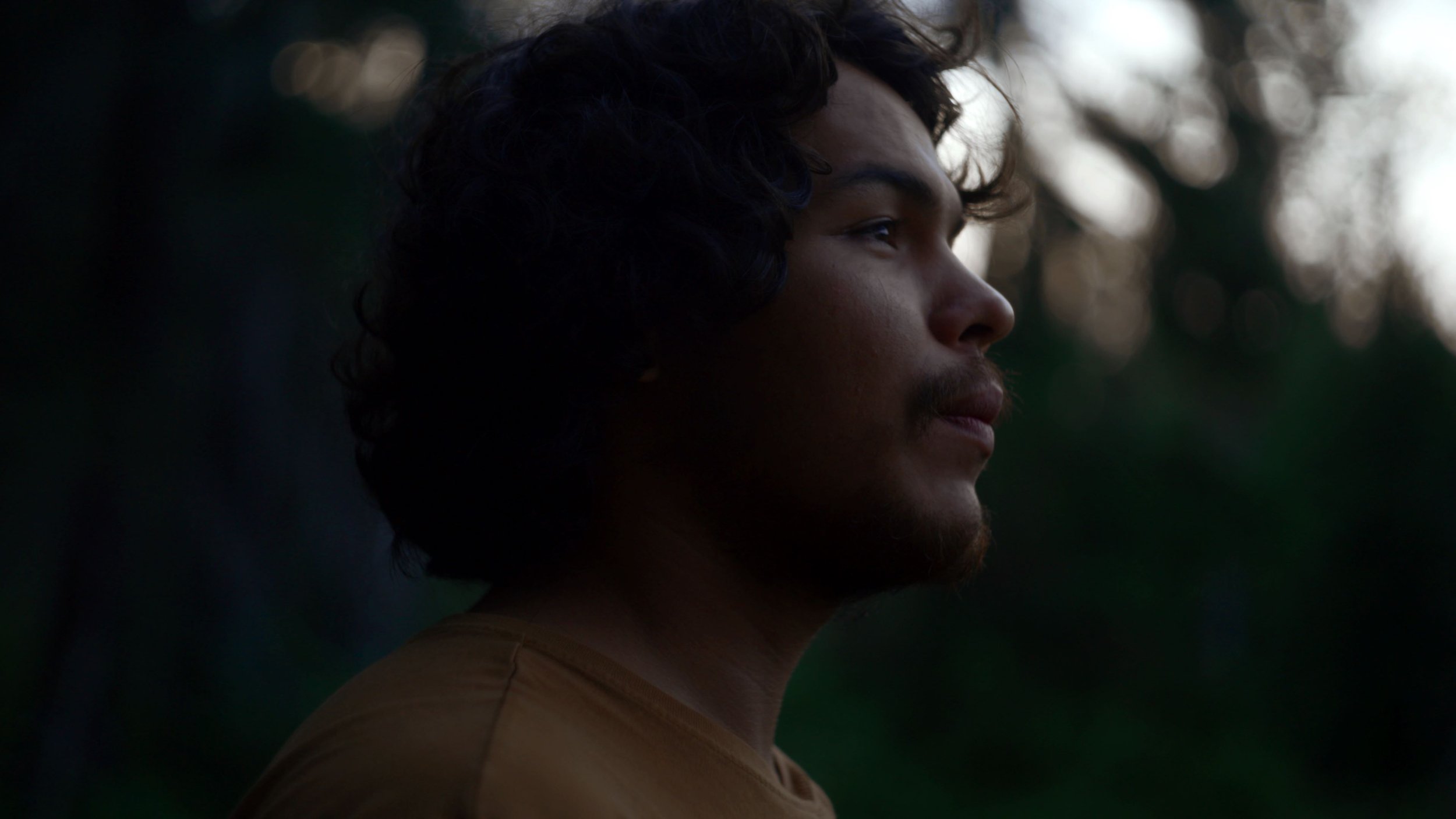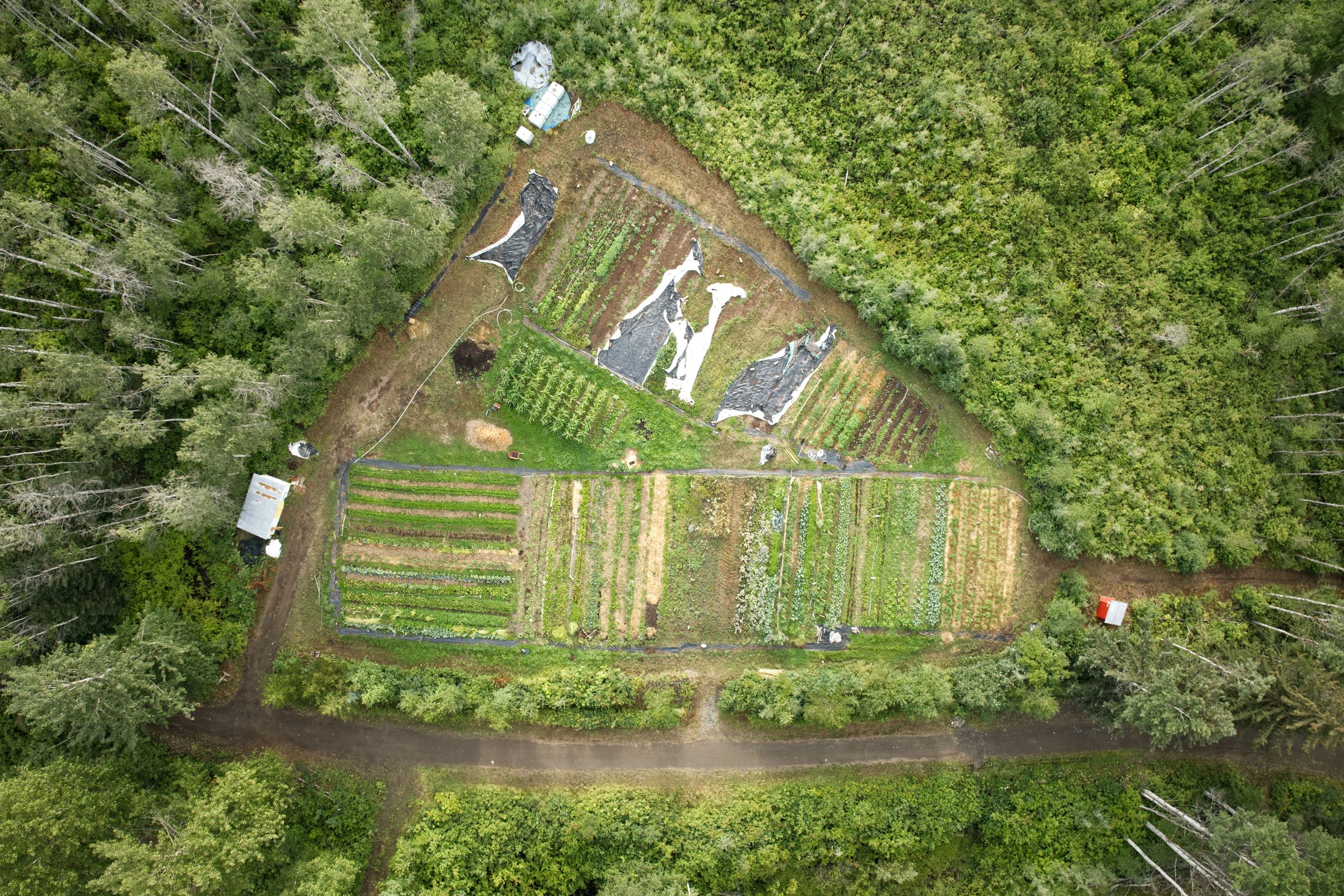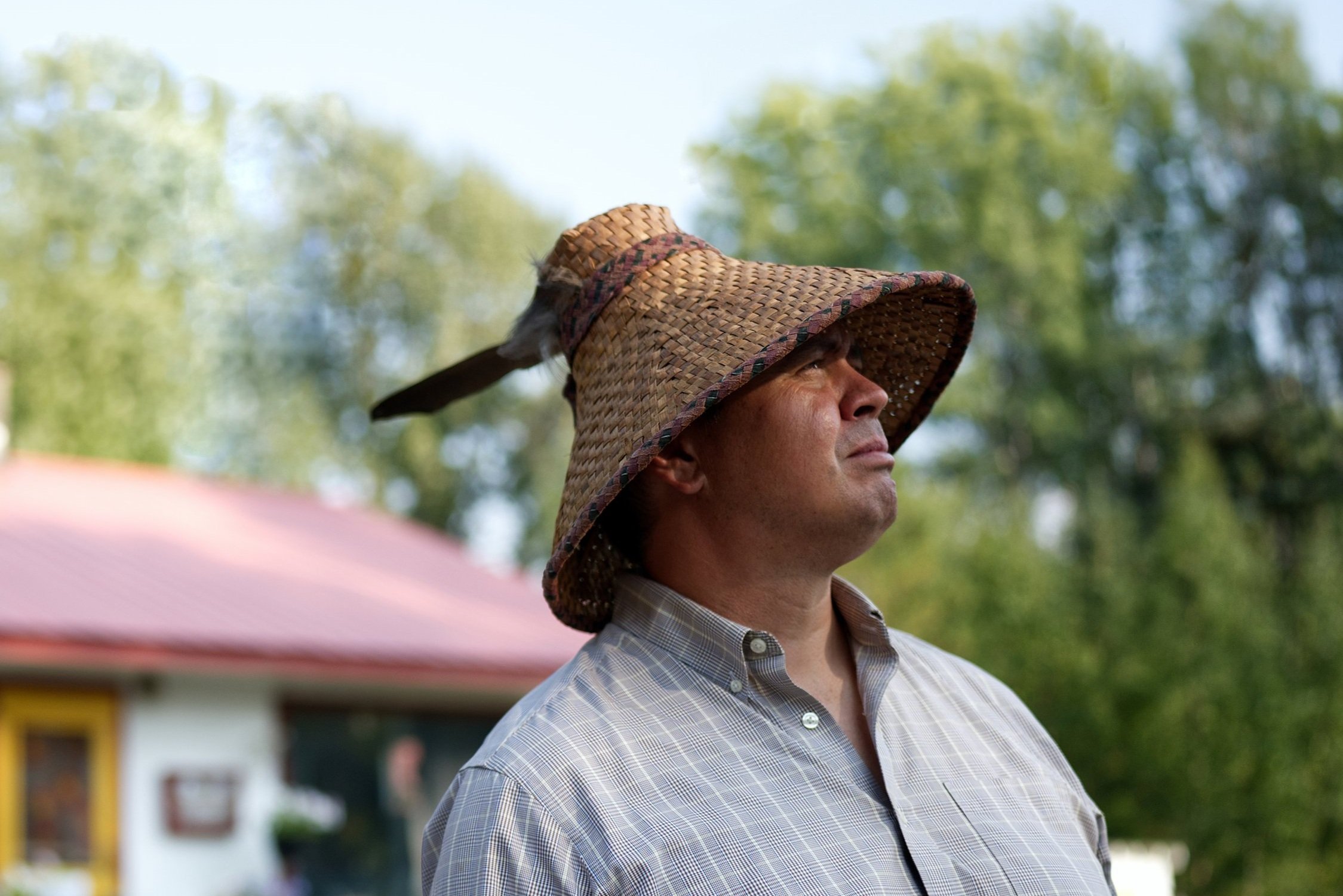
Watch The Trailer
Against the backdrop of colonization and the climate crisis, Jacob Beaton, a passionate Indigenous entrepreneur, has embarked on a remarkable journey. His vision is to transform his family farm into a beacon of hope for Indigenous Food Sovereignty. In a world where the connection to the land has been fractured, Jacob aims to revive the abundance that once defined Turtle Island.
The Film
For Indigenous Food Sovereignty activist Jacob Beaton, the very real threat of the climate crisis has pushed him into action. For him the path back to Indigenous food sovereignty not only offers resilience to an ever more uncertain future, but also an avenue towards healing from the horrors of colonization. In just a few short years Jacob has converted his homestead into Tea Creek, an Indigenous Food sovereignty training center in now-called Northern British Columbia.
Since 2020, Tea Creek has blossomed into a center for Indigenous empowerment and capacity building and has so far touched the lives of hundreds of members of the local community. Having received local and international acclaim, been named the United Nations Food Hero for North America and become a leader in Indigenous Food Sovereignty in Canada, other Indigenous communities have flocked to Tea Creek for both learning and nourishment. But for Jacob, getting here has been hard fought and the sheer size of the task of bringing back of Indigenous food sovereignty is a heavy weight to bear. Struggling to secure funding, burdened by the oppressive history of colonial agricultural policy and battling the new realities of the climate crisis, Jacob and his team face many barriers.
The film Tea Creek joins Jacob and his team at the beginning of the third year of training. Capturing the ups and downs of life at Tea Creek the film is an intimate portrait of Jacob, his team and one of Tea Creek’s youngest new farmers, Justice Moore. Following them through the growing season the film interweaves Jacob’s and Justice’s stories with the broader story of Tea Creek, the rich history of Indigenous agriculture and the little-known history of colonial actions to destroy it. Against the odds we see how Jacob and his team are reconnecting their participants with the land, recreating resilience and providing healing for their northern community and beyond.
The Issue
Indigenous food sovereignty is the right for Indigenous people to produce and consume their own food and control the policies that govern food production.
Since time immemorial the Indigenous peoples of Turtle Island have stewarded the land, using traditional knowledge and sophisticated technologies to create food sovereignty and an abundance that settlers once marvelled at. But since first European contact, intentional colonial actions have led to the destruction of Indigenous food systems, separating Indigenous peoples in now-called Canada from their cultures and the land. Now experiencing high rates of poverty, food insecurity and the ongoing impacts of Canada’s residential school system Indigenous people’s are still fighting for sovereignty, rights and reconciliation across Turtle Island.
The story of Tea Creek shows how the revitalization of Indigenous food sovereignty can lead not only to a return to the abundance that once defined Turtle Island but also can be a powerful pathway towards healing from the deep impacts of colonization. Reconnecting with the land, Indigenous food sovereignty and Indigenous people’s rich agricultural history is a powerful and transformative process, but it needs your support.
The Training Centre
Tea Creek is an award-winning, Indigenous-led, culturally safe, land-based Indigenous food sovereignty and trades training initiative.
From learning how to grow food to getting hands-on experience and instruction on heavy equipment, Tea Creek provides trainees with an immersive learning experience.
To learn more visit the website HERE



